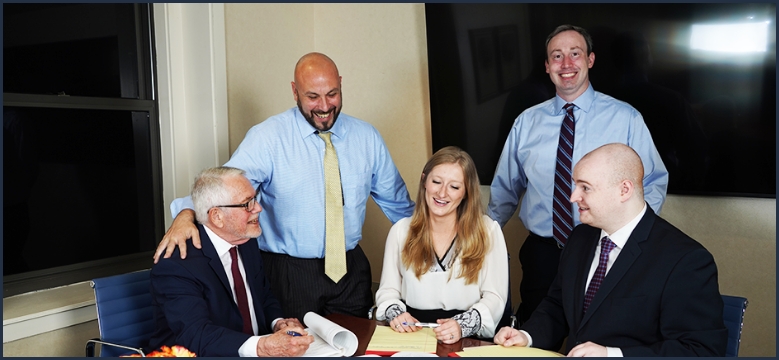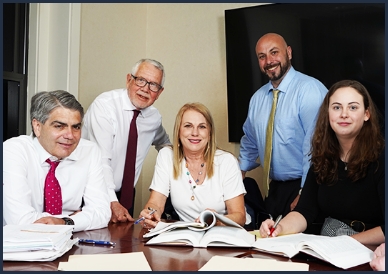Injuries at construction sites are often the result of the negligence of a general contractor, sub-contractor, project manager, product manufacturer, engineer, or architect.
Construction site accidents happen every year in Massachusetts and throughout the country. For example, a 37-year-old Boston man was killed while working at a construction site in Downtown Crossing when the scissor lift he was operating malfunctioned. In another incident, two construction workers were injured when the chutes used to move cement gave way and fell on them from an estimated height of 35 feet. In yet another incident, two construction workers were seriously injured due to a partial collapse of the upper floors of a building under construction in Boston’s Theater District. And the list goes on and on. On average, 1000 or more workers die each year from construction site accidents.
According to the Occupational Health and Safety Administration (OSHA), the federal agency responsible for the safety of workers on construction sites, the “Fatal Four” leading causes of death on construction sites are falls, electrocution, being struck by an object or caught in or between something.
Falls cause the greatest number of deaths and injuries on the job. Proper fall protection while working on things like ladders, roofs and scaffolding might prevent injury, but may be discouraged or not provided by the people running the job.
Electrocution accidents are caused by direct contact with power lines, improper grounding of electrical lines and improper use of power cords. OSHA guidelines require construction workers not to work near any part of an electrical power circuit unless it is turned off or they are adequately protected. But that doesn’t always happen.
“Struck by” deaths and injuries are most often caused by heavy equipment and vehicles, falling or flying objects, or masonry walls that are being constructed. “Caught-in or caught between” deaths and injuries occur when workers are caught between machines, devices, tools, equipment or collapsing excavation. Safety precautions, like inspecting brakes, clearing personnel before using lifting or dumping devices and wearing orange vests during the day and reflective vests at night are just some of the ways contractors could reduce these incidents.
Accidents may be caused simply because an employer forces workers to hurry and the general contractor or safety supervisor on the job site does nothing to stop the employer from jeopardizing the safety of the workers. If employers plan to get the job done safely, provide workers with the right equipment and train workers to use the equipment safely, most accidents are preventable.
In Massachusetts, a worker generally cannot sue his or her employer when the worker is injured on the job – instead the worker receives Workers Compensation benefits. But there are often others responsible for insuring safety on the jobsite, like a general contractor or safety supervisor. Sometimes injuries are caused by another employer’s crew or by defective equipment or machinery. You may have a valid claim if people or businesses other your employer or co-workers are responsible for safety or supervision. And prosecuting those claims will not only compensate you for your injuries, but it can also lead to better safety measures so other workers will not be injured or killed.
If you or a family member has been injured or killed in a construction site accident in Massachusetts, call KJC Law Firm for a free consultation.
If you are injured and unable to come to our office, we can come to see you and will determine whether you have a case. Our firm has more than 125 years of experience litigating major cases. We have the resources to investigate your claim, hire the necessary experts, and get you the compensation that you deserve. KJC Law Firm represents people from communities across Massachusetts, including the Greater Boston area, Cambridge, MetroWest, Worcester, Springfield, Cape Cod, Fall River and Lowell.













































Five Tips to Survive Your Lawsuit and Help Make It a Winner
If you’d like to share more information with us about your situation, feel free
to write as much or as little as you like below. (Not required.)